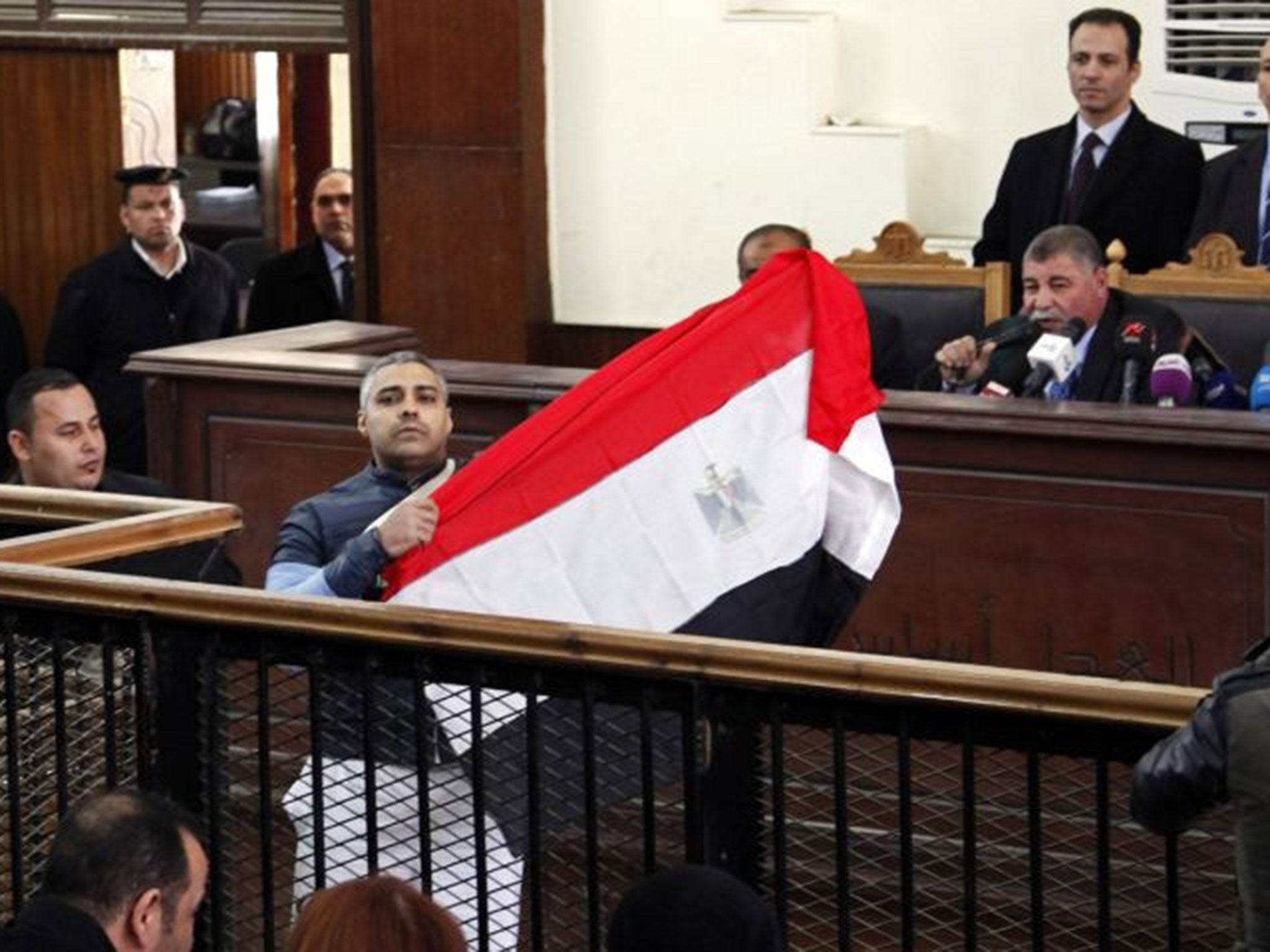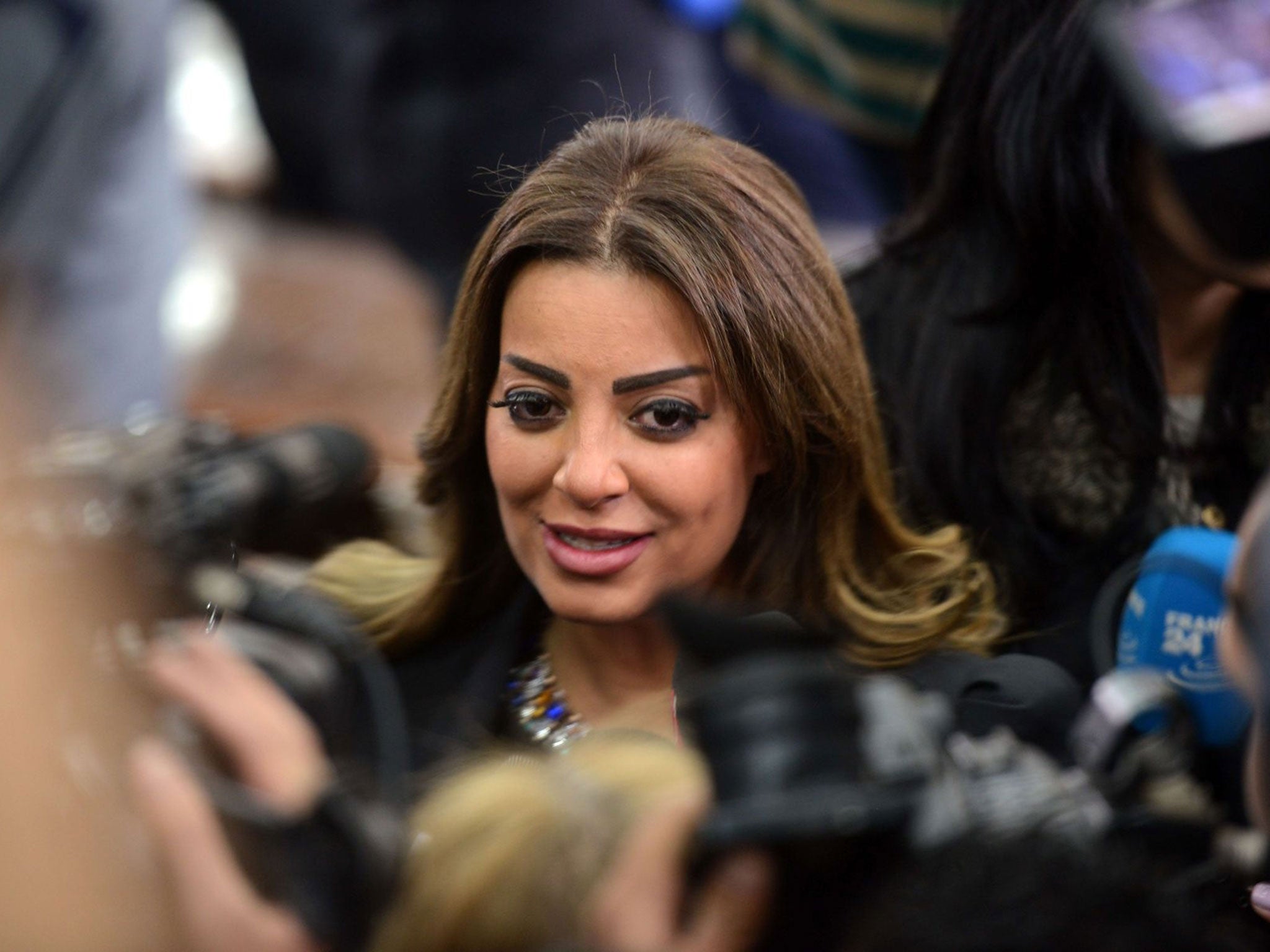Freed Al-Jazeera journalist: Why can’t Canada get me home?
The journalist accused the broadcaster of "epic negligence".

Your support helps us to tell the story
From reproductive rights to climate change to Big Tech, The Independent is on the ground when the story is developing. Whether it's investigating the financials of Elon Musk's pro-Trump PAC or producing our latest documentary, 'The A Word', which shines a light on the American women fighting for reproductive rights, we know how important it is to parse out the facts from the messaging.
At such a critical moment in US history, we need reporters on the ground. Your donation allows us to keep sending journalists to speak to both sides of the story.
The Independent is trusted by Americans across the entire political spectrum. And unlike many other quality news outlets, we choose not to lock Americans out of our reporting and analysis with paywalls. We believe quality journalism should be available to everyone, paid for by those who can afford it.
Your support makes all the difference.Mohamed Fahmy, Al-Jazeera’s Canadian-Egyptian television bureau chief freed on bail by an Egyptian judge on Thursday, last night angrily attacked Canada for mistakes which he said have left him trapped in Egypt and alleged “epic negligence” on the part of his television employer.
Speaking emotionally to The Independent from Cairo, he called the 400 days of imprisonment which he and his two colleagues endured “a geo-political score-settling in which we three were the pawns.”
Walking with his fiancée Marwaa in the gardens of the Marriott Hotel in Cairo – where he and his fellow journalists, Australian Peter Greste and Egyptian Bahr Mohamed, were arrested by Egyptian police in December 2013 – Mr Fahmy expressed his frustration that, after he renounced his Egyptian citizenship, the Canadian government had failed to take him to Cairo airport and put him on a flight to Toronto.
He was now determined, he said, to see Egyptian ministers and even visit Egyptian president Abdul Fattah al-Sissi’s office to seek his freedom abroad.
“This is not acceptable,” Mr Fahmy said. “Even the Egyptians are asking my family: ‘Where are the Canadians?’ Is my dual citizenship an excuse to have a laid-back approach? I didn’t even want to drop my Egyptian citizenship but they told me this was the only way. But this is not even close to being over for me.
“I have to go every day in the morning to sign my name at a police station close to my home. It’s like parole.”
The three men were found guilty of allegedly aiding terrorists and spreading “false news” by reporting on events after the coup which ousted Mohamed Morsi, the elected president who was a member of the Muslim Brotherhood. Mr Fahmy gave up his Egyptian citizenship on the understanding that, just as Mr Greste was allowed to return to Australia, he would be permitted to fly to Canada - officially either to serve his sentence or to face a retrial.
He said the Canadian Prime Minister, Stephen Harper, had not acted to secure his release - unlike his Australian counterpart, Tony Abbott, who intervened decisively on Mr Greste’s behalf.
“I’ve got to deal with Egyptian ministries here myself – who is a better advocate for myself than me? But why hasn’t Harper spoken to Sissi? Tony Abbott spoke to Sissi three times to get Peter out of the country.
“Even John Kerry says it is draconian to lock up journalists – and he doesn’t have any Americans in prison in Egypt. The best the Canadians could say was that they were ‘very disappointed’ about our imprisonment. A Canadian spokesman said that they sent ‘a letter’ to Sissi – they wouldn’t even reveal the date of the letter.”
Careful not to offend the Egyptian authorities, 40-year old Mr Fahmy said that an officer in the country’s “security apparatus” told him that renunciation of his citizenship was “the only way” for him to get out of the country. His family had posted bail of $35,000 so that he could leave Egypt and – in theory – serve the rest of his sentence in Canada.
“The officer was friendly and said to me on the phone: ‘Hey Mohamed, I know your family has served their country. You can come back here as a tourist. You can always come back’. So now I’m just waiting for the Canadians to put an effort into getting me to Canada.”
Mr Mohamed Fahmy, an award-winning journalist, was born in Cairo but grew up in Canada and Kuwait, working for CNN and the Los Angeles Times and writing for the New York Times.
Al-Jazeera denounced the imprisonment of their journalists on ‘terrorism’ charges which all three men denied, and for which prosecutors produced no credible evidence. Journalists and political leaders around the world demanded their release but now – with Mr Fahmy at the gates of freedom – Canada appears to have lagged behind other Western nations. Mr Harper has been condemned in Ottawa for his handling of the case.
Mr Greste is now back in Australia and the third journalist, Bahr Mohamed, who has only Egyptian nationality, is with his family at home in Cairo, where he faces retrial . He was not asked for bail. Only now, says Mr Fahmy, has Al-Jazeera’s management arrived in Cairo. “There was no-one here from Al-Jazeera to pay for my bail – if my brother hadn’t helped me with money, I would have spent another two days in prison. For the first stage of our trial, they got the worst lawyers in Egypt to defend us.
“But now I’m out, I want to leave. My name is on a no-fly list at the airport. I need the Canadians to get me off that list, to get the signature of the prosecutor to get me out and to apply the same laws and procedures they applied to Peter.
“When [then Canadian foreign minister John] Baird came here, he said in public that if I was sent to Canada, I wouldn’t have to serve the rest of my prison sentence. Of course I wouldn’t. But this was a diplomatic error. Egypt is saying Peter and I are to be deported to finish our sentences abroad, there’s a lot of face-saving for Egypt. Then Baird goes and says this.”

Of his 400 days in prison, Mr Fahmy was emotional. “The hardest thing is to be an innocent man behind bars,” he said. “And with people not realising that you are just an innocent journalist. Yes, it’s an infringement to imprison journalists. But this case must also be seen at a geopolitical level. It is geo-political score-settling and we were the pawns.
“We were paying the price of the political battles between coalitions – between the Qataris and the Turks [who supported the Muslim Brotherhood], and the Egyptians, Saudis and United Arab Emirates [who support President Sissi]. These coalitions don’t know who the terrorists are, they don’t know who to bomb first and who to imprison first.”
Subscribe to Independent Premium to bookmark this article
Want to bookmark your favourite articles and stories to read or reference later? Start your Independent Premium subscription today.
Join our commenting forum
Join thought-provoking conversations, follow other Independent readers and see their replies
Comments